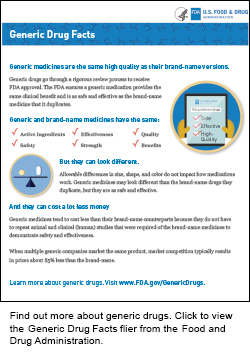Search for a doctor or hospital in your network.


Search for a doctor or hospital in your network.
Download the BCBSMT App. Your coverage information in the palm of your hand.

Get News & Updates Directly To Your Inbox
This article is intended for members enrolled in an individual health insurance plan.
Use our Provider Finder® online tool to make sure any providers you see are in the network for the plans you are considering. Providers may change networks periodically. To access Provider Finder, log in to Blue Access for MembersSM and click on the Find a Doctor or Hospital tab.
Your costs for health care coverage include:
We can’t predict the future. Illnesses, injuries and joyous events happen, often unexpectedly. But sometimes there are clues ahead of time.
Family history may suggest some chronic conditions are likely to develop around certain stages of life. In that case, consider plans with lower copays to offset frequent visits.
Certain sports activities may raise the risk of getting hurt. You may want to look at plans with a lower deductible in case larger copays or an extended stretch of office visits come up.
Anyone who faces stress or grief may find it helpful to see a therapist. Those visits may require copays as well.
An HSA is a special savings account that you may use to cover a wide range of qualified medical expenses. An HSA can help you take charge of your health and be responsible for how you spend your health care dollars.
For many people, using an HSA is an effective way to help manage the costs of health care. Not all plans are HSA compatible, so review your options carefully.
Please note that certain individuals who receive cost-sharing reductions under their benefit plan that reduce the deductible below the federal government’s minimum deductible may not be eligible to contribute to a Health Savings Account. Please consult your tax adviser for more information.
One of our licensed sales agents or your independent, authorized Blue Cross and Blue Shield of Montana agent can help you understand your options.
Prescription medication coverage and copays or coinsurance amounts can vary between plans.
 All health coverage plans we provide have a drug list, or a list of drugs the plan will cover. Within that list, there are payment level tiers. Drugs that are in a lower tier will usually cost you less.
All health coverage plans we provide have a drug list, or a list of drugs the plan will cover. Within that list, there are payment level tiers. Drugs that are in a lower tier will usually cost you less.
If any of your medications appear to have moved to a higher tier with a higher out-of-pocket cost, you may want to consult with your doctor to ask if there are lower tier alternatives or generics available.
Generics typically work like a brand drug at the same dose, strength and use. Generics are also approved by the Food and Drug Administration.
For some drugs, your doctor may need to document certain symptoms or test results before your prescription drug coverage may be approved.
Originally published November 21, 2019; Revised 2020, 2021
Blue Cross and Blue Shield of Montana, a Division of Health Care Service Corporation,
a Mutual Legal Reserve Company, an Independent Licensee of the Blue Cross and Blue Shield Association
© Copyright 2026 Health Care Service Corporation. All Rights Reserved.
Verint is an operating division of Verint Americas, Inc., an independent company that provides and hosts an online community platform for blogging and access to social media for Blue Cross and Blue Shield of Montana.
![]() File is in portable document format (PDF). To view this file, you may need to install a PDF reader program. Most PDF readers are a free download. One option is Adobe® Reader® which has a built-in screen reader. Other Adobe accessibility tools and information can be downloaded at https://www.adobe.com/trust/accessibility.html.
File is in portable document format (PDF). To view this file, you may need to install a PDF reader program. Most PDF readers are a free download. One option is Adobe® Reader® which has a built-in screen reader. Other Adobe accessibility tools and information can be downloaded at https://www.adobe.com/trust/accessibility.html. ![]()
![]() You are leaving this website/app ("site"). This new site may be offered by a vendor or an independent third party. The site may also contain non-Medicare related information. Some sites may require you to agree to their terms of use and privacy policy.
You are leaving this website/app ("site"). This new site may be offered by a vendor or an independent third party. The site may also contain non-Medicare related information. Some sites may require you to agree to their terms of use and privacy policy.
Powered by Verint